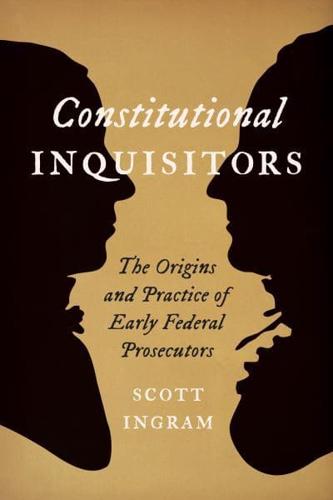Publisher's Synopsis
The evolution of the federal prosecutor's role from a pragmatic necessity to a significant political figure.
In the United States, federal prosecutors enjoy a degree of power unmatched elsewhere in the world. They are free to investigate and prosecute-or decline to prosecute-criminal cases without significant oversight. And yet, no statute grants them these powers; their role is not mentioned in the Constitution. How did they obtain this power, and are they truly independent from the political process? In Constitutional Inquisitors, Scott Ingram answers these questions by tracing the origins and development of federal criminal law enforcement.
In the first book to examine the development of the federal law enforcement apparatus in the earliest part of the early republic, Ingram explains how federal prosecutors' roles began as an afterthought but quickly evolved into powerful political positions. He also addresses two long-held perceptions about early federal criminal prosecution: that prosecutors tried many more cases than historians thought and that the relationship between prosecution and executive power is much more complex and interwoven than commonly assumed.
Drawing on materials at the National Archives as well as correspondence and trial reports, Ingram explores the first federal criminal case, the first use of presidential pardon power, the first federal prosecution of a female, and the first interstate criminal investigation. He also discloses internal Administration discussions involving major criminal cases, including those arising from the Whiskey Insurrection, Neutrality Crisis, Alien and Sedition Acts, and Fries' Rebellion. As the United States grapples today with political divisions and arguments over who should be prosecuted for what, Constitutional Inquisitors reveals that these problems began with the creation of the federal prosecutor role and have continued as the role gained power.










